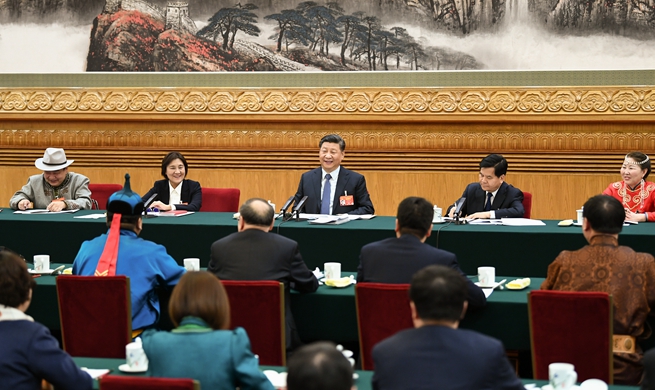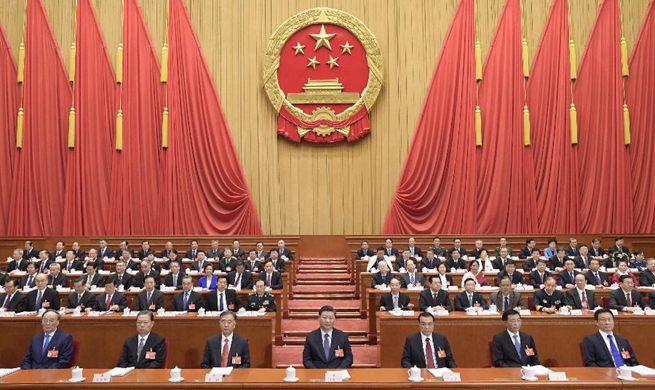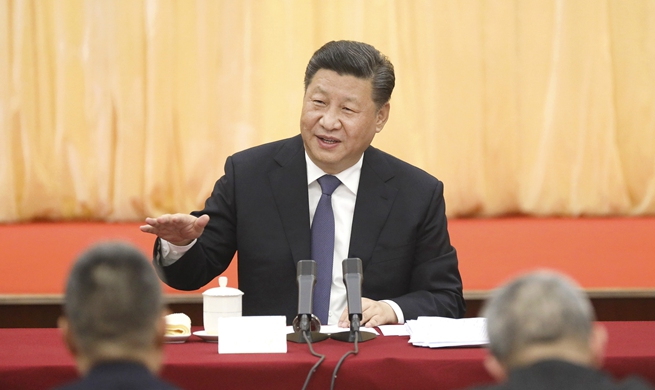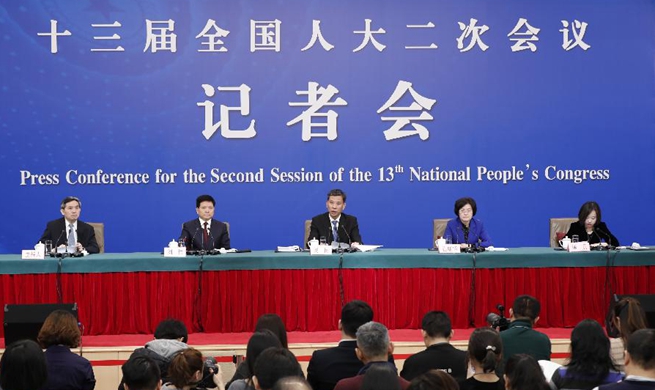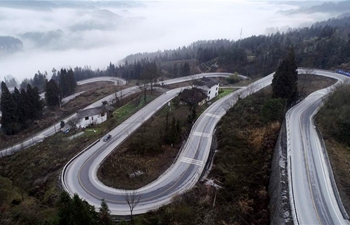OTTAWA, March 6 (Xinhua) -- Canada unveiled a national space strategy on Wednesday, a week after Prime Minister Justin Trudeau announced that the country would participate in a U.S.-led space station.
The U.S. National Aeronautics and Space Administration (NASA) plans to build a new Lunar Gateway, a small space station in the moon's orbit, around 2026.
Canada on Feb. 28 announced an investment of 1.9 billion Canadian dollars (about 1.4 billion U.S. dollars) over 24 years for the next generation of smart, artificial intelligence-powered space robotics for the Lunar Gateway.
Canada's involvement will enable its researchers to perform observations in the fields of astrophysics, heliophysics (the study of effects of the Sun on the solar system), solar-terrestrial interactions, and Earth observation, which are not possible from the ground or from the Earth's orbit, according to the strategy.
The gateway will "improve our understanding of solar storms and their effects on astronauts, spacecraft systems, and terrestrial infrastructure such as power lines and telecommunications systems."
Canada's space strategy too has a domestic focus to "make life better for Canadians," including promoting connectivity and enhancing security.
Furthermore, it's aimed to improve remote medicine and healthcare on Earth by monitoring vital signs and performing diagnostics on astronauts in space, and to also transfer an initiative to improve access to healthy food across Canada beyond the Earth.
"Growing nutritious food effectively in remote regions with harsh environments could allow us to mature the technology to do the same on the moon and in deep space," says the strategy.
It also supports Canada's astronaut program, and "guarantees flight opportunities in low-Earth orbit for ... (Canadian) astronauts and sets the stage for a Canadian to visit the moon for the first time."
David Saint-Jacques is currently on the International Space Station. Jeremy Hansen is scheduled to become the next Canadian astronaut in space.
Canada is playing catch-up with other countries pursuing space exploration. It became the third nation, after the United States and the former Soviet Union, to launch a satellite in 1962. So far it has recruited 14 astronauts, eight of whom have participated in 16 space missions.






